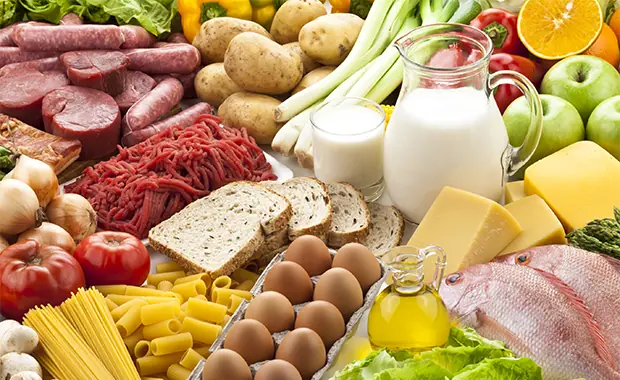
Eat well. Believe it or not, that's what most active people need to learn to do: Eat for performance. Eat for health.
Nutrition Events Near You
I am surrounded by athletes who do not know how to eat well. They know how to skip breakfast and lunch, how to stay away from carbs, how to blow their diets.
These athletes would not only perform better, but also be healthier down the road if they could eat better on a daily basis—eat at the right times to optimize energy, eat the best foods to promote future good health, and eat wisely to manage weight.
For many athletes, eating well seems a trivial concern. They joke about overdosing on vitamin C-3 (chocolate chip cookies). They are influenced by these prevailing beliefs: "Food is fattening;" "I don't have time to eat" or "I don't have time to eat well."
A survey of 50 collegiate football players reports they averaged 59 percent of their calories from sugars and fats. Yes, that's a lot of junk food.
The daily intake of those football players contrasts sharply with the daily diet of Diana Dyer, a three-time cancer survivor who optimized her eating and acquired remarkable benefits.
After having been diagnosed with breast cancer for a second time (11 years after her first breast cancer diagnosis — and this was several years after a childhood neuroblastoma), Diana decided she would put only "protective foods" in her body. This means a soy shake with fruit, flax and berries for breakfast, and lunches and dinners abundant with fresh fruit, colorful salads, beans, nuts, fish, soy and other wholesome foods.
Being a dietitian, Diana also recognizes the need for "soul foods" (birthday cake, chocolate chip cookies), and she eats them on occasions when she wishes to nourish her soul.
So has all this healthy eating done any good? Diana believes her optimal diet is largely responsible for the increase in her white blood cell count. It rose from the too low 2,500 cells/cubic millimeter it had been for 11 years after her first breast cancer treatment to the more normal level of 4,700 after her second breast cancer treatment.
As I listened to Diana tell this story at Grand Medical Rounds at the Dana Farber Cancer Center, I internalized how powerful and strong food is as a health protector. Yes, food is fuel and one of life's pleasures, but the right foods can also be critical health protectors and healers.
(Diana's book A Dietitian's Cancer Story and her web site www.cancerRD.com offer more information about healing food plans.)
The purpose of this article is to invite you to think about how you eat and to offer a few tips on eating well as an athlete — eating healthfully, appropriately and enjoyably. Eating to heal the tiny injuries that occur with each workout. Eating to refuel the muscles and prepare them for the next session. Eating to optimize muscular growth, enhance the immune system, and protect your body from the diseases of aging.
I hope the information will inspire you to choose a positive sports diet that repairs your muscles optimally, fuels them energetically, and protects your good health.
Eating Tip #1
If you have weight to lose, eat — don't diet. Diets are oppressive, unrealistic and ineffective. They tend to leave you hungry all day long and you will never win the war against hunger.
As a client of mine said: "My mother put me on my first diet when I was 9 years old, I have gotten fatter and fatter with every successive attempt to lose weight. Diets have made me fat, not thin!" So true. Do not diet!
The best way to control your weight is to eat wholesome foods, quality calories, protective foods. Starting at breakfast, have a fruit smoothie, oatmeal topped with nuts and honey, multi-grain toast smothered with peanut butter, yogurt with berries, or granola. All of these choices are quick and easy, tasty, health protective and energy enhancing.
Fear not that you'll "get fat" eating breakfast. Research indicates breakfast eaters are not only leaner than breakfast skippers, but also have better quality diets overall.
Plus, you need a hearty breakfast to fuel your afternoon workout (or refuel your morning workout) and dampen the desire for evening junk food. The best way to lose weight is to eat satiating food; you can feel fed but still lose body fat.



